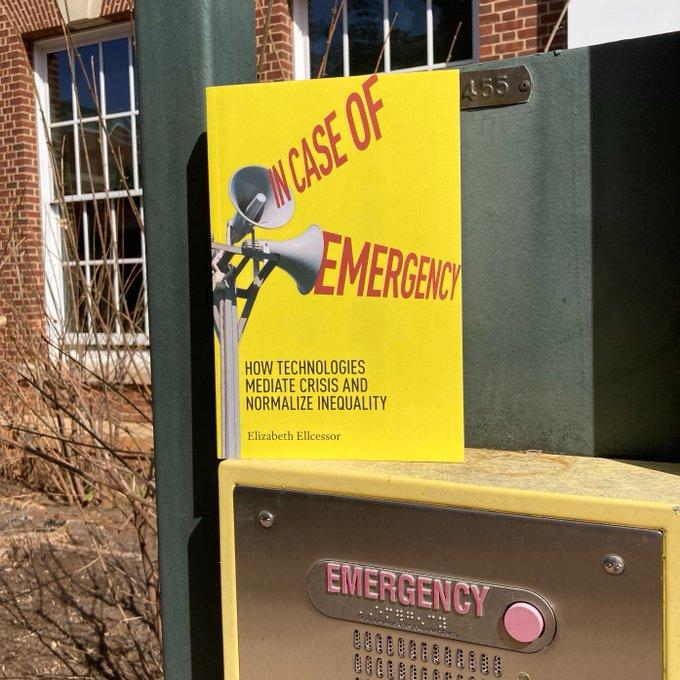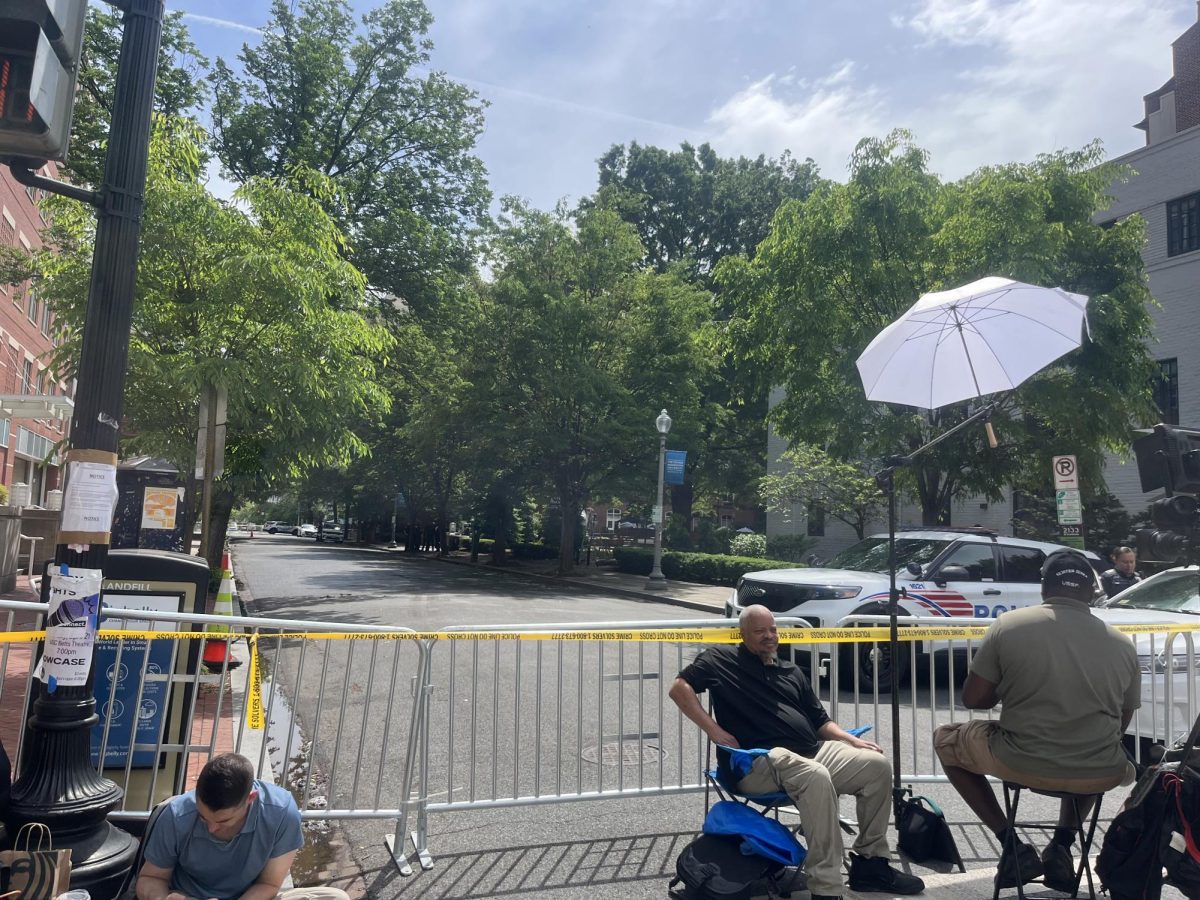CONTENT WARNING: This article briefly mentions sexual assault and gender-based violence. Please refer to the end of the article for on- and off-campus resources.
Modern emergency notification technologies, such as 911 help lines, fail to equally serve all populations and negatively harm marginalized communities, a graduate said at an event hosted by the Georgetown Disability Studies Program.
The Oct. 17 talk entitled “Call If You Can,” was hosted by the Disability Studies program alongside the Georgetown Center for New Designs in Learning and Scholarship, a university center that helps faculty craft transformational learning experiences for students, and the Film and Media Studies program. The event centered Elizabeth Ellcessor’s (SFS ’04) book “In Case of Emergency: How Technologies Mediate Crisis and Normalize Inequality,” which focuses on the interaction between emergency media technology and inequalities.
At the event, Ellcessor, an associate professor of media studies at the University of Virginia and senior faculty fellow at UVA’s Miller Center, spoke about disparities caused by many emergency prevention systems, including Life Alert, 911 response services, governmental emergency warnings and COVID-19 tracking apps.
According to Ellcessor, existing emergency response institutions fail to serve all populations equitably and often endanger the lives of vulnerable groups, such as the experiences of people of color with law enforcement.
Ellcessor opened with the story of Judy McKim, a mother who was forced to cover her garage with notices to local law enforcement that her son was autistic after he was assaulted by police responding to a 911 call in 2016.
“McKim’s garage is but one example of how Black families have attempted to protect their disabled children,” Elcessor said at the event. “Smaller protective acts include parents who ask neighbors to never call 911, or who preemptively install security systems to record any encounters with authorities. While all kinds of people may face crises, these actions demonstrate that the systems of emergency identification and response — including media systems such as 911 — are not equally available or reliable.”
Blue light emergency alarm stations, which are typically found on college campus so students can call for help in emergencies, reinforce existing stereotypes about instances of sexual assaults on college campuses, according to Ellecssor. In reality, blue light systems typically are unused and primarily function for universities to advertise a superficial sense of security.
“These physical media infrastructures reflect several assumptions about the nature of crime, in general, and sexual assault, specifically — that it occurs in public, is committed by strangers — and the desired response: contacting campus authorities,” Ellcessor said. “The phones were installed as a response; they were never a solution.”

Ellcessor said 911 help centers can also create barriers in emergencies because callers of certain backgrounds are not always trusted by operators when seeking help.
“Multiple studies indicate that this is more easily done when a caller can present themself in alignment with the expectations of the reporting system ideologically, linguistically and culturally,” Ellcessor said. “Those who cannot do so — people of color, disabled people and non-English speakers — are particularly likely to find that reporting a situation to police or authorities may worsen circumstances rather than improve them.”
Ellcessor said that despite these flaws, there is still hope for the future of emergency services because disability justice movements can serve as exemplars of effective problem solving not founded on a return to an unrepresentative concept of normalcy.
“Disability justice is an intersectional framework for collective, anti-capitalist access and liberation,” Ellcessor said.“Disability justice activists and theorists have long worked to build models of centering sustainability, slowness and building for the long haul, rather than succumbing to logics of cure or restoration that seek to restore normalcy.”
Change is only possible by remaining vigilant and critical of the inequalities created by emergency response systems, according to Ellcessor.
“We must pay attention when such systems are installed, activated or changed, and ask tough questions about what technologies we employ, accept and deputize in pursuit of safety for ourselves, our loved ones and our communities,” Ellcessor said. “What emergency media is now is not what it must always be.”
Resources: On-campus resources include Health Education Services (202-687-8949) and Counseling and Psychiatric Service (202-687-6985)); additional off-campus resources include the D.C. Rape Crisis Center (202-333-7273) and the D.C. Forensic Nurse Examiner Washington Hospital Center (844-443-5732). If you or anyone you know would like to receive a sexual assault forensic examination or other medical care — including emergency contraception — call the Network for Victim Recovery of D.C. (202-742-1727). To report sexual misconduct, you can contact Georgetown’s Title IX coordinator (202-687-9183) or file an online report here. Emergency contraception is available at the CVS located at 1403 Wisconsin Ave NW and through H*yas for Choice. For more information, visit sexualassault.georgetown.edu.














